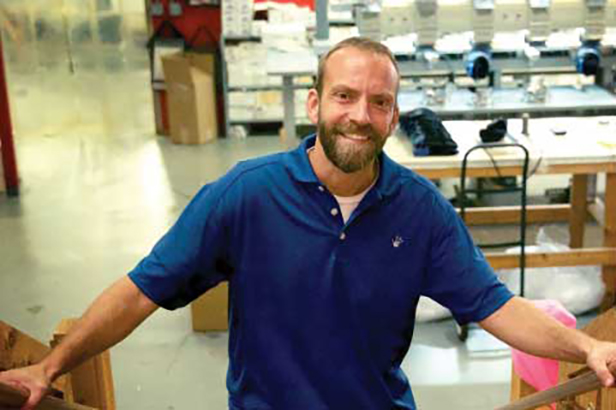August 26, 2019
Court Hears Arguments In Alleged LGBTQ Discrimination Case Involving Apparel Decorator
Claims of discrimination are clashing with arguments for freedom of speech and conscience.
The Kentucky Supreme Court has heard oral arguments in a controversial case centered on a Lexington, KY apparel decorating company’s decision to decline to print T-shirts for a local LGBTQ pride festival on the grounds that to do so would conflict with the owner’s religious beliefs.
Now, it’s up to the top justices in the Bluegrass State to decide if Blaine Adamson and his Hands On Originals (HOO; asi/219413) violated Lexington’s local fairness ordinance. In part, the ordinance prohibits businesses open in a public forum from discriminating against people based on sexual orientation.

Blaine Adamson, Hands On Originals
In court on Friday, Adamson’s attorney James Campbell argued HOO wasn’t discriminating against an individual or group of people. Rather, the company was acting on its right to refrain from printing “messages” on T-shirts that conflict with the conscience/religious beliefs of Adamson – a devout Christian who markets his company as “Christian Outfitters” that cater to Christian schools, camps, organizations and more.
“The First Amendment in this case cuts in Hands On Originals’ favor,” Campbell said, “because the First Amendment ensures that the government can’t use a law to force someone to print or convey a message that they find objectionable.”
“The one thing that matters to (HOO),” Campbell additionally stated, “is the message that they’re asked to print, not the person who’s requesting it from them.”
As such, Adamson has not committed an act of discrimination, goes the argument from Campbell, senior counsel for the Alliance Defending Freedom, a conservative Christian nonprofit that says it aims to protect religious freedom.
The Lexington-Fayette Urban County Human Rights Commission disagrees, saying Adamson’s decision to not print the shirts is a blatant case of discrimination. That’s why, after learning of HOO’s refusal, the commission ordered the business to not discriminate in the future and to send staff to sensitivity training. No fines were issued.
On Friday, the commission’s lawyer, Ed Dove, told the court that HOO, like other public businesses, is legally barred from deciding which customers they want to serve based on those would-be clients’ race, gender, sexual orientation and/or religion.
“That’s why we have a public accommodations ordinance: to stop businesses from allowing certain populations to be discriminated against and not enjoy the goods and services that are being offered by that business,” Dove told the court. “The fact is, as Mr. Campbell has admitted to this court, Hands On Originals practices censorship. They want you and this court to affirm the fact that they can pick and choose who they want to serve based on the message.”
While it’s unclear when a decision will be issued, justices raised questions that suggested they had serious concerns about the type of precedent that would be set by a ruling in a HOO’s favor. For example, Justice Samuel Wright III indicated he was worried by the concept that minority groups that want to express themselves would not be able to do so if businesses felt empowered through law to reject them.
“If the message is not popular and everyone says ‘I will not print it, I have an objection and I cannot print it,’ then we have eliminated free speech,” Wright said, according to the Lexington Herald-Leader. “We are making a rule of law. And I have some difficulties with anything that limits speech.”
The case stretches back to 2012. That’s when Hands On Originals declined to print T-shirts for the Lexington-based Gay and Lesbian Services Organization’s (GLSO) pride festival. Adamson has said that he offered up another print shop that would produce the order for the same price. The shirts were to feature the words “Lexington Pride Festival” and a large number “5” colored with rainbow dots – a nod to it being the city’s fifth pride festival.
“I’ve happily served and employed people of all backgrounds, of all walks of life.... I have gay customers and employ gay people,” Adamson has said in an online commentary. “We’ll work with everyone, but we can’t print all messages.”
The human rights commission prevailed in an initial ruling, but subsequent legal battling led to HOO winning in the Fayette County Circuit Court and Kentucky Court of Appeals.
The eventual Supreme Court ruling could set precedent that impacts future court decisions in similar cases that pit accusations of discrimination against claims of freedom of speech and religion.